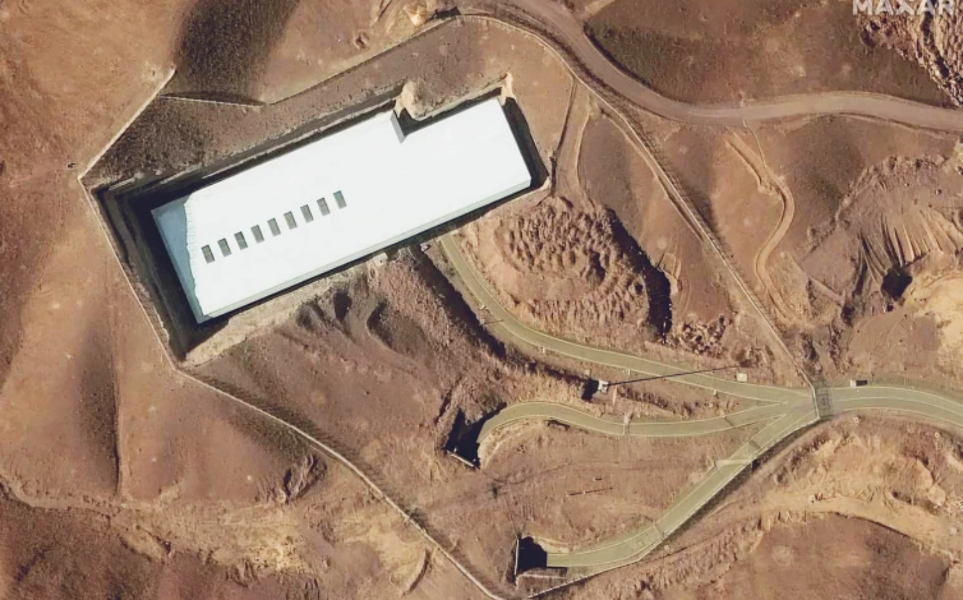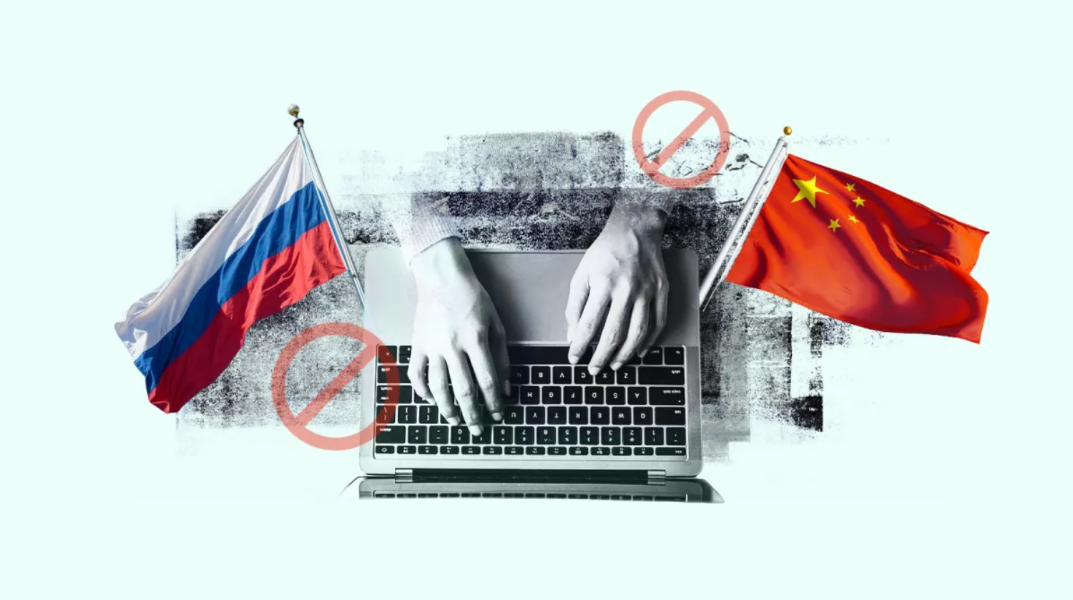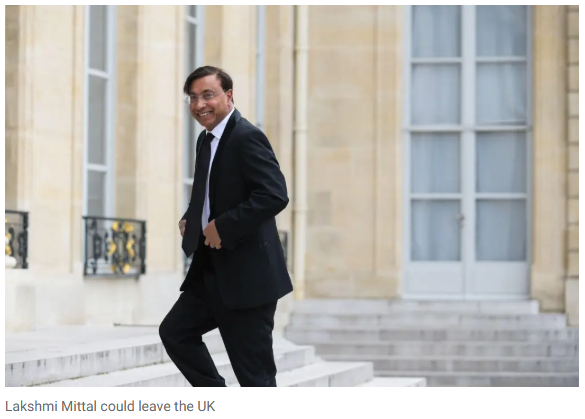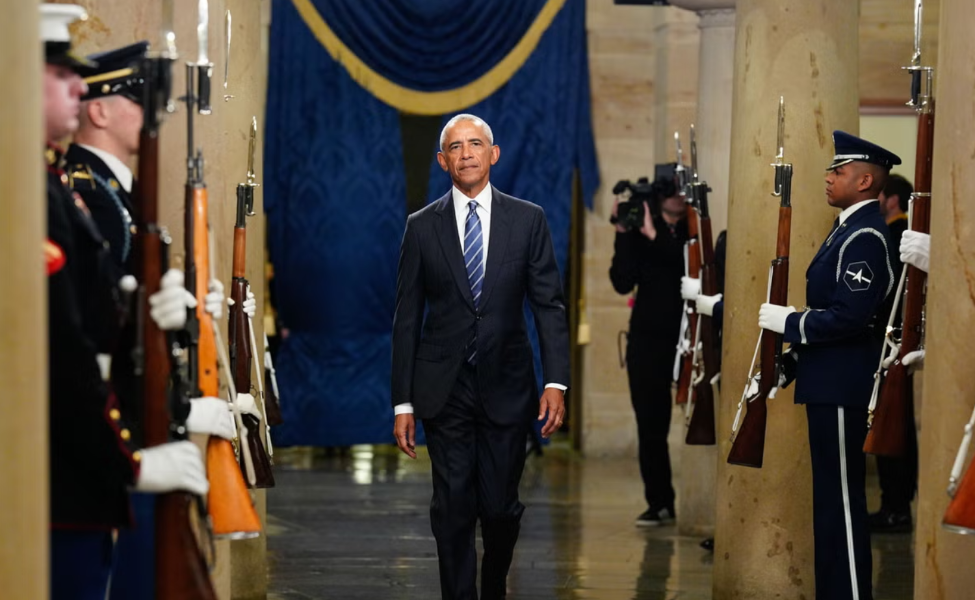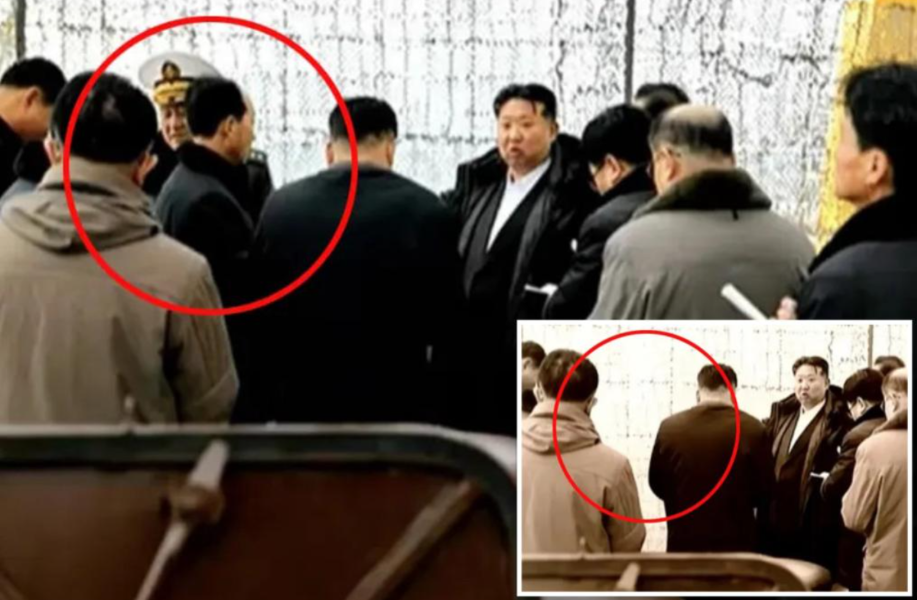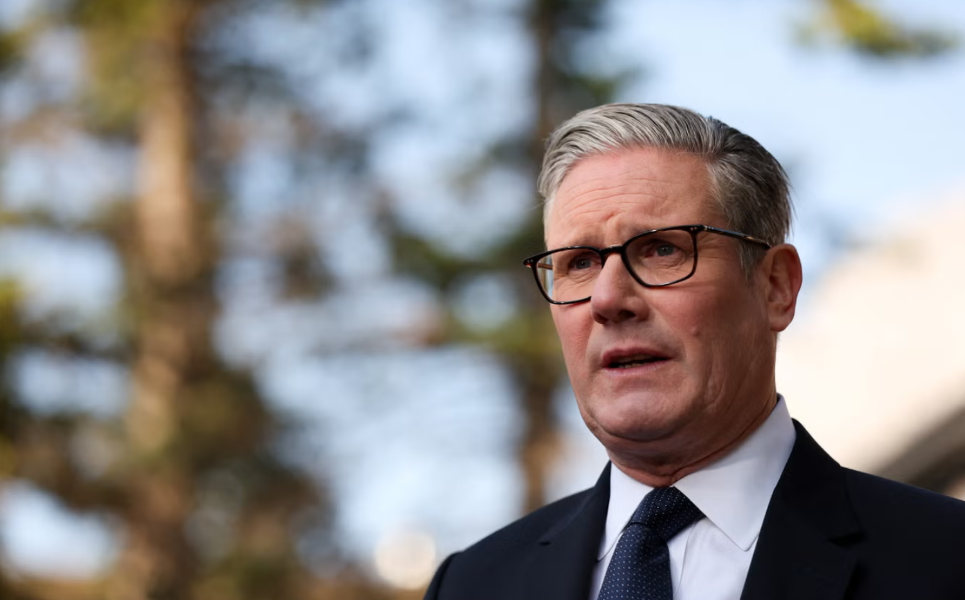-
Posts
10,807 -
Joined
-
Last visited
Content Type
Events
Forums
Downloads
Quizzes
Gallery
Blogs
Everything posted by Social Media
-
Trump Confirms Surprise US Airstrikes on Iran’s Nuclear Sites, Including Fordo President Donald Trump has announced that the United States has launched a surprise military strike on Iran, targeting three of its nuclear facilities in what he described as a “very successful attack.” The move ends weeks of speculation over whether Washington would join Israel in its escalating conflict with Tehran. Ever since Israel began its offensive against Iran, there had been a tense and uncertain waiting game over whether Trump would involve the United States directly. His hesitation was particularly noteworthy given his long-standing criticism of previous American interventions in the Middle East. As recently as two days ago, Trump had told reporters he would make a decision on US involvement “within two weeks,” a remark that seemed designed to calm tensions and buy time for diplomatic maneuvering. However, in a dramatic turn of events, Trump announced through a post on Truth Social that the United States had carried out airstrikes on three key Iranian nuclear sites—Fordo, Natanz, and Esfahan. Among these, Fordo is known to be heavily fortified and located deep underground, requiring specialized ordnance to penetrate its defenses. “We have completed our very successful attack on the three Nuclear sites in Iran, including Fordow, Natanz, and Esfahan. All planes are now outside of Iran air space,” Trump wrote. The president, also revealed that a “full payload of bombs” had been dropped on the Fordo site. He did not specify whether the sites were destroyed or merely damaged, and so far, no video or photographic evidence of the strikes has been released to the public. “All planes are on their way back to the US,” he added. According to a report by the Reuters news agency citing a US official, the attack involved B-2 stealth bombers, aircraft known for their ability to penetrate dense air defenses and deliver bunker-buster bombs—suggesting that the operation was carefully calibrated to disable Iran’s most protected nuclear facilities. The announcement is sure to raise fresh concerns over the prospect of a broader regional conflict. US airstrikes on Iranian territory—especially on nuclear infrastructure—represent a major escalation and risk triggering retaliation from Tehran or its allies across the Middle East. Whether Trump’s decision will spark further violence or serve as a deterrent remains to be seen. But what is certain is that his unexpected move has brought an end to the guessing game that has dominated headlines since Israel began its assault—and ushered in a new, unpredictable phase of the confrontation with Iran. Adapted by ASEAN Now from BBC 2025-06-22 bf685d4951066ee291181a0556db8c1c.mp4
-

UK Stephen Fry and the Cultural Elite’s Contempt for Dissenting Women
Social Media replied to Social Media's topic in World News
@BLMFem your post was removed, any more of that and you will get more than a public mod post warning 17. ASEAN NOW news team collects news articles from various recognised and reputable news sources. The articles may be consolidated from different sources and rewritten with AI assistance These news items are shared in our forums for members to stay informed and engaged. Our dedicated news team puts in the effort to deliver quality content, and we ask for your respect in return. Any disrespectful comments about our news articles or the content itself, such as calling it "clickbait" or “slow news day”, and criticising grammatical errors, will not be tolerated and appropriate action will be taken. Please note that republished articles may contain errors or opinions that do not reflect the views of ASEAN NOW. If you'd like to help us, and you see an error with an article, then please use the report function so that we can attend to it promptly. -

USA Trump to make decision on US involvement 'within two weeks'
Social Media replied to Social Media's topic in World News
Further off topic diversion attempts have been removed. The topic title is below, feel free to read the OP and comment on it. Trump to make decision on US involvement 'within two weeks' An additional post over a month old article on Hegseth has been removed. -
Labour Whip Resigns in Protest Against Starmer’s Welfare Reforms Labour MP Vicky Foxcroft has resigned from her role as a party whip, stating she cannot stand behind welfare reforms proposed by Prime Minister Sir Keir Starmer that would result in financial losses for disabled people. In a letter addressed directly to Starmer, Foxcroft expressed her opposition to what she described as damaging and unjust changes to the welfare system. “I cannot support reforms which include cuts to disabled people’s finances,” she wrote, making her stance clear in a growing internal dispute within the Labour Party. Foxcroft’s resignation comes as tensions continue to rise over a controversial £5 billion-a-year package of proposed savings to the government’s disability and sickness benefits bill. Central to the plan are reductions in the personal independence payment (PIP), a benefit designed to support people with long-term physical or mental health conditions. These measures have sparked the largest rebellion of Starmer’s leadership so far. More than 150 Labour MPs have reportedly signed a private letter voicing their opposition to the planned cuts, underscoring a deepening divide between the party’s leadership and its backbenchers. Despite mounting pressure, the Prime Minister has remained defiant. Over the weekend, he made it clear he was prepared to face down dissent from within his own ranks, emphasizing the necessity of implementing the reforms. “The reforms must be pushed through,” he insisted, signaling his determination to proceed despite the backlash. Specific details of the legislative changes are expected to be laid out later this week, ahead of a crucial parliamentary vote likely to take place before summer recess begins next month. The outcome of that vote may prove to be a defining moment for Starmer’s administration, as he seeks to press forward with a policy that has triggered both political fallout and public controversy. Foxcroft’s departure from the frontbench adds further weight to the growing opposition movement and highlights the difficult balancing act facing Labour’s leadership: reconciling fiscal discipline with social responsibility, while maintaining party unity in the lead-up to a critical vote. Her resignation letter marks a public and pointed rejection of the current direction of Labour policy under Starmer’s leadership, placing further scrutiny on the Prime Minister’s handling of internal dissent and the broader implications of cutting support for vulnerable citizens. The issue of disability benefits reform is fast becoming a litmus test not only for Starmer’s leadership, but for Labour’s core values as a party that has long prided itself on defending the welfare state. Adapted by ASEAN Now from The Telegraph 2025-06-21
-
Iran’s Allies Retreat: Axis of Resistance Withers Amid Growing Regional Pressure Iran’s once-formidable “Axis of Resistance” is now showing deep cracks, with many of its longtime militant allies distancing themselves from Tehran as the Islamic Republic grapples with dwindling regional influence and increasing isolation in its conflict with Israel. Experts say that the constellation of Iran-backed groups across the Middle East — from Hezbollah in Lebanon to Hamas in Gaza, and the Houthis in Yemen to Shiite militias in Iraq — are more preoccupied with their own survival than defending their Iranian benefactor. Years of military losses and shifting political priorities have left them unwilling or unable to escalate the fight on Iran’s behalf. “For all of these networks right now, it’s about survival. They all understand the wrath of these types of military campaigns,” said Renad Mansour, senior fellow and director of the Iraq Initiative at the Chatham House think tank, in an interview with The Wall Street Journal. “Many of them question if this is the time for resistance or whether it’s the time to keep your head down and try to stay out of this conflict.” Among the most striking examples of retreat is Hezbollah, once seen as Iran’s strongest and most loyal proxy. Following a devastating Israeli campaign in Lebanon last year that reportedly killed nearly all of the group’s senior leadership — including its founder Hassan Nasrallah — Hezbollah has significantly scaled back its operations. A surprise “pager” attack by Israel in September killed dozens of militants and injured thousands more, according to Arab diplomats. Since then, Hezbollah has not fired a single rocket following last week’s attacks on Iran. Disillusionment is reportedly growing within Hezbollah’s ranks. Some members blame the Islamic Revolutionary Guard Corps (IRGC) for intelligence failures that allowed Israel’s surprise assault, and believe Iran did little to protect them. Lebanese officials, including President Joseph Aoun and Prime Minister Nawaf Salam, have publicly insisted that their country will not be dragged into another war — further isolating Hezbollah from Tehran’s current regional ambitions. The shift away from Iran is not limited to Lebanon. In Syria, the sudden ouster of longtime dictator Bashar al-Assad in a swift revolution late last year dealt a major blow to Iran’s regional ambitions. Assad had been one of Tehran’s key allies, but reports suggest Iran did not instruct its militias to defend him, instead urging them to evacuate. This perceived abandonment has sent a stark message across the resistance network. In Iraq, the traditionally militant Iran-backed Shiite militias have adopted a notably cautious stance. Unlike previous conflicts, they have not launched attacks on U.S. bases — a sign of their reluctance to jeopardize their current political and economic gains. Many militia leaders are now embedded in Iraq’s government and benefiting from the country’s oil boom. “They’ve been sort of benefiting from Iraq’s stability, in a way, and the high oil prices to develop economic empires,” said Mansour. So far, only Kataeb Hezbollah has commented on the current crisis, stating that it would only act if the United States directly enters the conflict. Even the Houthis in Yemen — who have vowed to attack Israeli and U.S. ships in the Red Sea and Gulf of Aden in solidarity with Iran — are operating with diminished capability. After a series of intense U.S. and British airstrikes in March and April, their missile and drone infrastructure has been significantly degraded. According to American officials, these strikes, part of the so-called SignalGate operation, have severely limited the group’s ability to project force. Iran now faces a strategic vacuum. Its “Axis of Resistance,” once seen as a powerful regional deterrent, is faltering. Beset by internal doubts, military losses, and shifting alliances, the proxies that once defined Tehran’s reach are increasingly choosing to lie low rather than stand by the Islamic Republic in its hour of need. Adapted by ASEAN Now from NYP 2025-06-21
-
Majority of Democrats Say Party Leadership Must Go, Survey Finds Amid Internal Strife A growing number of Democrats are voicing dissatisfaction with the direction of their party, with more than 60 percent now believing that its leadership should be replaced, according to a new Reuters/Ipsos poll. The findings come at a turbulent time for the Democratic Party, which has been struggling to regroup after a devastating loss in the 2024 elections. The survey, conducted between June 11 and June 16 and including responses from 1,293 self-identified Democrats out of 4,258 participants, revealed that 62 percent of Democrats support replacing the current leadership. Only 24 percent opposed such a change, while 14 percent were undecided or did not respond. The poll has a margin of error of three percentage points. The party has been engulfed in internal chaos since losing both the presidency and control of the Senate in November. As Democrats scramble to identify the causes of their political downfall, they have also struggled to coalesce around a coherent vision for the future. The Democratic National Committee (DNC), once a symbol of unity and strategy, has instead become a site of increasing infighting. In just the past week, tensions boiled over again when a major teachers union leader stepped down from a party leadership role. This came just days after former DNC Vice Chair David Hogg declared he would not seek re-election in a forthcoming leadership vote. These high-profile exits have only intensified scrutiny of current DNC Chair Ken Martin, whose leadership has drawn criticism from within the party ranks. Fractures are also clearly visible on Capitol Hill, especially when it comes to messaging on divisive issues like transgender rights and how best to counter former President Trump’s political narrative. Rep. Sarah McBride of Delaware, who made history as the first openly transgender member of Congress, emphasized the need for a more inclusive approach within the party. “We must make more space for disagreement when it comes to trans rights and welcome ‘imperfect allies’ into the discussion to bring about long-term and substantial change,” McBride said this week. Senate Minority Leader Chuck Schumer has not escaped criticism either. Earlier this year, Schumer faced backlash from progressive members of his own party after supporting a Republican-led funding bill. Among the most vocal critics was Rep. Alexandria Ocasio-Cortez of New York, who denounced Schumer’s actions. “There is a deep sense of outrage and betrayal,” Ocasio-Cortez said at the time. The Reuters/Ipsos poll further revealed that 49 percent of Democrats are dissatisfied with the party’s current leadership, while 41 percent still support them. The remaining 10 percent either did not respond or were unsure. These numbers reflect a deepening schism within the party base and highlight the urgent need for a recalibration of Democratic strategy heading into 2026 and beyond. As calls for change grow louder, the Democratic Party faces a pivotal moment—one that may determine not only the future of its leadership but also its identity in an increasingly polarized political landscape. Adapted by ASEAN Now from The Hill 2025-06-21
-
Pope Leo’s Surprising Family Tree: From Pop Stars to Revolutionaries Pope Leo XIV, the first American pontiff in the history of the Catholic Church, has a family tree more intertwined with modern celebrity and historical upheaval than many might expect. According to new genealogical research, the Pope shares a distant ancestral link with global pop icon Madonna—making the two ninth cousins through a common ancestor born around six generations ago. The discovery is particularly striking given Madonna’s contentious history with the Catholic Church. The singer has frequently courted controversy for her provocative use of religious symbols in music videos and stage performances, most notably in her 1989 hit “Like a Prayer.” Despite their opposing public personas—one a conservative spiritual leader and the other a rebellious pop provocateur—they are bound by shared heritage. This familial connection is just one of many uncovered by a deep investigation conducted by The New York Times Magazine in collaboration with genealogists from American Ancestors and the Cuban Genealogy Club of Miami. Their five-century sweep through Pope Leo’s lineage uncovered a host of well-known relatives. Pop singer Justin Bieber, former U.S. Secretary of State Hillary Clinton, Oscar-winning actress Angelina Jolie, Canadian political figures Justin and Pierre Trudeau, and Beat Generation author Jack Kerouac all share ancestry with the pontiff, through the same 16th-century forebear—Louis Boucher de Grandpré, a Canadian born in the 1590s. The researchers describe Pope Leo’s ancestry as a mosaic of nobility, enslavement, and resistance. “Noblemen, enslaved people, freedom fighters and slaveholders are all part of the family tree of the first American pope,” the magazine stated on social media. One of the most striking revelations was that Pope Leo has 17 identified African American ancestors, a finding the team called “earthshattering.” This complex background includes ancestors who were both enslaved and slaveholders. Pope Leo’s maternal fourth-great grandmother, Marie Jeanne, was enslaved by François Lemelle, who fathered at least six of her children. In 1772, Lemelle freed her and two of their daughters. When he died in 1789, he left Marie Jeanne one-fifth of his estate, which included 15 slaves. Pope Leo also descends from military and revolutionary figures. His fourth-great grandfather, Charles Louis Boucher de Grandpré, served as a militia commander in Louisiana during the American Revolution and was responsible for capturing several British outposts in 1777. Another ancestor, Antonio José de Sucre, was a Venezuelan general who fought alongside Simón Bolívar in the liberation of Latin America from Spanish colonial rule. Sucre’s decisive victory at the Battle of Ayacucho in 1824 helped secure Peru’s independence. He later became Bolivia’s first constitutionally elected president in 1825, only to be assassinated in Colombia five years later. What emerges is a portrait of a Pope whose background defies expectations—marked by unexpected celebrity connections, deep American roots, and a lineage threaded through both the darkest and most triumphant chapters of history. Adapted by ASEAN Now from The Telegraph 2025-06-21
-
Three Years to the Brink: Climate Scientists Warn of Imminent 1.5C Breach The planet is just three years away from surpassing the critical 1.5 degrees Celsius global warming threshold if carbon dioxide emissions remain at current levels, according to a dire new warning issued by more than 60 of the world’s top climate scientists. Their latest study, the most comprehensive update yet on the trajectory of global warming, signals that without swift and severe cuts to emissions, the world will overshoot its most important climate target. In 2015, nearly 200 nations signed the landmark Paris Agreement, pledging to limit global temperature increases to 1.5C above pre-industrial levels in hopes of staving off the most catastrophic impacts of climate change. However, a continued reliance on fossil fuels and widespread deforestation have pushed that target dangerously close to being breached. "Things are all moving in the wrong direction," said Professor Piers Forster, lead author of the study and director of the Priestley Centre for Climate Futures at the University of Leeds. "We're seeing some unprecedented changes and we're also seeing the heating of the Earth and sea-level rise accelerating as well." He added that these shifts are no surprise. "These changes have been predicted for some time and we can directly place them back to the very high level of emissions." At the start of 2020, climate scientists estimated humanity had around 500 billion tonnes of carbon dioxide left to emit to retain a 50% chance of staying within the 1.5C limit. But by early 2025, this “carbon budget” will have shrunk dramatically to just 130 billion tonnes, according to the new findings. With current emissions averaging 40 billion tonnes per year, that budget would be depleted in roughly three years, potentially locking the planet into breaching the Paris threshold. Although this would not immediately result in a global temperature rise of 1.5C, the trajectory suggests that threshold will likely be passed around the year 2030. While 2024 saw the first-ever 12-month period where average global air temperatures exceeded 1.5C above pre-industrial levels, this alone does not constitute a formal breach of the Paris Agreement. However, researchers found that last year’s temperature—1.36C above historical norms—was overwhelmingly driven by human-caused emissions. The planet is currently warming at a pace of about 0.27C per decade—an unprecedented rate in Earth’s geological history. While some propose removing carbon from the atmosphere as a potential solution after breaching 1.5C, experts caution that such technologies remain largely theoretical and may not fully reverse the warming. "For larger exceedance [of 1.5C], it becomes less likely that removals [of CO2] will perfectly reverse the warming caused by today's emissions," warned Professor Joeri Rogelj of Imperial College London. One of the most striking findings of the study is the acceleration in the Earth’s “energy imbalance”—the rate at which the planet is absorbing more energy than it emits. Dr. Matthew Palmer of the UK Met Office and University of Bristol explained, "That's a really large number, a very worrying number" over such a short time frame. This energy is manifesting in multiple ways—warming land and air, melting glaciers, and, most significantly, heating oceans. Approximately 90% of the excess heat is absorbed by the seas, contributing not only to marine disruption but also rising sea levels. The pace of sea-level rise has doubled since the 1990s, further endangering coastal populations around the world. Despite the grim projections, there is a faint glimmer of hope. The rate of emissions growth appears to be slowing, partly due to the expansion of cleaner technologies. Scientists stress that now is the time for urgent action. "Reductions in emissions over the next decade can critically change the rate of warming," said Professor Rogelj. "Every fraction of warming that we can avoid will result in less harm and less suffering of particularly poor and vulnerable populations and less challenges for our societies to live the lives that we desire." Adapted by ASEAN Now from BBC 2025-06-21
- 151 replies
-
- 22
-

-

-

-
Stephen Fry and the Cultural Elite’s Contempt for Dissenting Women Stephen Fry’s recent comments about JK Rowling have added yet another voice to the chorus of celebrities condemning the author over her views on sex and gender. Speaking on The Show People podcast, Fry remarked that Rowling “seems to be a lost cause for us,” accusing her of making comments that are “inflammatory and contemptuous, mocking and add to a terribly distressing time for trans people.” He even went so far as to claim that she had “been radicalised by TERFs” — a slur often used against feminists who assert the importance of biological sex. It’s not the first time Fry has taken aim at Rowling. In 2022, on another podcast, he attempted a more diplomatic approach, calling Rowling a friend while lamenting that his “trans friends and intersex friends” were “deeply upset by her.” He suggested a truce of sorts, calling on Rowling and trans activists to “retreat” and consider that both trans people and women should be able to live full lives with dignity. That request, couched in civility, failed to mask the underlying presumption: that Rowling’s concerns should be shelved to preserve the comfort of his social circle. Fry’s misunderstanding of the political and cultural stakes in the so-called “gender wars” is telling. This is not about table manners or polite disagreement; it’s about rights, definitions, and material realities. The notion that Rowling is simply stirring controversy for its own sake ignores the substance of her arguments — arguments rooted in longstanding feminist thought and, as recently affirmed by the UK Supreme Court, biological fact. Perhaps Fry’s renewed criticism was prompted by that very ruling, which defined “woman” in biological terms, a victory Rowling celebrated publicly. Her celebratory mood — champagne and cigars — may have rankled Fry. Some men, after all, don’t like to see women win arguments, especially when they defy the expectations of their cultural class. Fry’s desire for Rowling to “retreat” is not just misguided — it’s a reflection of the cultural elite’s impulse to control who gets to speak and how. He himself has faced criticism in the past, including a 2023 scandal involving off-color jokes about women and Muslim terrorists. One might think that someone who has tasted the wrath of the outrage machine would be more cautious about demanding silence from others. Instead, Fry now appears eager to stay in the good graces of a new cultural establishment — one that prizes ideological conformity over open debate. His image as a modern Oscar Wilde rings hollow when paired with such cowardice. At best, his remarks betray a shallow understanding of what Rowling actually says. At worst, they represent a willful attempt to isolate her for refusing to submit to the social orthodoxy of the moment. Most revealing was Fry’s complaint that Rowling fails to show “love” to trans people. “You have to let people love you,” he said, arguing that to be labeled “transphobe” over mere disagreement is counterproductive. But demanding “love” from political opponents is not only unrealistic — it’s also a tactic used to shame women into silence. It reframes principled disagreement as a failure of etiquette or kindness. What Fry and others seem to want is not genuine dialogue, but docility. They want women like Rowling to defer, apologise, and recede. When they refuse, it is framed as cruelty or bigotry. But women have every right to defend their boundaries, their spaces, and their vocabulary. They don’t need love — they need freedom, dignity, and respect. If that’s too much for Fry and others to stomach, then so be it. JK Rowling has endured years of criticism from powerful figures, but she remains undeterred. She is used to being told to be quiet. And, thankfully, she continues to speak anyway. Adapted by ASEAN Now from The Telegraph 2025-06-21
-
Activists Claim Damage to RAF Military Aircraft in Protest Against Gaza Operations Two pro-Palestine activists say they infiltrated RAF Brize Norton and caused damage to military aircraft in protest against British involvement in the war in Gaza. The incident, which reportedly took place on 20 June, was captured on video and released by the protest group Palestine Action. The footage shows the activists approaching the aircraft on electric scooters before spraying red paint into the turbine engines using what appear to be modified fire extinguishers. They are then seen using crowbars to cause further physical damage to the planes. Palestine Action stated that the target was chosen due to the airbase’s regular flights to RAF Akrotiri in Cyprus, a key hub for British military operations in the Middle East. "Flights leave daily from the base to RAF Akrotiri in Cyprus," the group said. "From Cyprus, British planes collect intelligence, refuel fighter jets and transport weapons to commit genocide in Gaza.” The group claims that the two individuals involved in the sabotage managed to leave the base without being apprehended. “The two activists escaped undetected,” Palestine Action reported. RAF Brize Norton, the largest station in the Royal Air Force and a vital point for air transport, aerial refuelling, and strategic airlift, has yet to issue a statement in response to the incident. The protest highlights growing tensions over Britain’s perceived military role in the conflict in Gaza. The activists’ use of symbolic tactics—red paint to mimic blood, for instance—echoes previous Palestine Action demonstrations aimed at raising awareness of what the group alleges is UK complicity in Israeli military actions. While the authenticity of the activists' claims and the extent of the damage have not yet been independently verified, the incident marks a serious breach of security at one of the UK’s most important military installations. RAF Brize Norton has been contacted for comment. Adapted by ASEAN Now from The Independent 2025-06-21
-
Trump Hails Court Ruling on National Guard Deployment as “BIG WIN” Amid LA Protests President Donald Trump is celebrating a federal court decision that allows his administration to continue using National Guard troops in Los Angeles to counter protests against federal immigration raids. The ruling, issued Thursday by the 9th U.S. Circuit Court of Appeals, permits Trump to maintain the deployment despite objections from California state officials. Trump wasted no time in declaring victory on his Truth Social platform, writing, “BIG WIN — Great decision for our country.” He praised the ruling as a validation of his authority to protect cities across America. “The Judges obviously realized that Gavin Newscum is incompetent and ill prepared,” Trump wrote, using a derogatory play on Governor Gavin Newsom’s name. “But this is much bigger than Gavin, because all over the United States, if our Cities, and our people, need protection, we are the ones to give it to them should State and Local Police be unable, for whatever reason, to get the job done.” The court’s opinion, issued without a named author, marks a reversal of a lower court’s earlier decision. U.S. District Judge Charles Breyer had previously ruled in favor of California Governor Newsom’s legal challenge, which argued that Trump lacked the authority to federalize the National Guard over the state's objections. The new appellate court decision blocks that ruling for now and allows the deployment to continue while the legal case proceeds. In its unsigned opinion, the court wrote, “It is likely that the President lawfully exercised his statutory authority.” The judges noted that their conclusion was based on giving “appropriate deference to the President’s determination,” ultimately deciding that “he likely acted within his authority in federalizing the National Guard.” The case centers on Trump’s decision to deploy approximately 4,000 National Guard soldiers and more than 700 Marines to respond to unrest in Los Angeles sparked by a wave of federal immigration raids. The move, which bypassed state consent, has intensified already strained relations between the Trump administration and California officials. Governor Newsom has fiercely opposed Trump’s mass deportation plan and has repeatedly clashed with the federal government over immigration enforcement. His lawsuit aimed to halt what he described as an unconstitutional use of military force on U.S. soil without state approval. While the court has allowed the federal deployment to proceed for now, it also emphasized the temporary nature of the ruling. The three-judge panel will continue to deliberate on the legal merits of the case in the coming weeks. Meanwhile, the Pentagon has clarified the role of the deployed troops, stating that U.S. soldiers will not directly engage in law enforcement activities during the protests. Instead, they will focus on protecting federal buildings and personnel. The ruling has further ignited the political divide over federal authority, immigration enforcement, and the role of the military in domestic affairs — issues that remain deeply contentious as Trump positions himself for a potential return to the White House. Adapted by ASEAN Now from The Independent 2025-06-21
-
Topic clean up. A number of off topic posts and replies removed. @PatThaiM please discuss the topic not what you want the topic to be.
-
Troll posts removed @BLMFem please stop the baiting and continued bickering
-

USA Trump to make decision on US involvement 'within two weeks'
Social Media replied to Social Media's topic in World News
Another off topic post removed. Please discuss the topic without deliberate diversion attempts, read the OP about what this is about and not what you want it to be about. Trump to make decision on US involvement 'within two weeks' If you want to discuss Trumps political supporters/opponents then there are other topics such as this one. -
UK Judge Rules Security-Based Job Ban on Chinese, Russian Nationals Is Lawful, Not Racist A judge has ruled that employers in sectors tied to national security can legally exclude job applicants from countries like China, Russia, Iran, and North Korea, citing the risk of espionage. The decision, handed down by employment tribunal judge Richard Baty, determined that such exclusions are not discriminatory but rather legitimate precautions in sensitive industries. The case arose from a complaint by Tianlin Xu, a Chinese scientist, who claimed race discrimination after being turned down for a £220,000 lead position at Binary AI, a London-based software company working with artificial intelligence to detect flaws in government software. The firm supports efforts to block hacking attempts on critical systems used by Western governments, including those of the UK and US. Xu argued that her rejection was based on “racial stigma” and “stereotyping,” but the tribunal sided with the employer, ruling that concerns over national security could lawfully override standard employment discrimination protections in such contexts. Binary AI’s founder and director, James Patrick-Evans, had rejected Xu’s application following strong advice from British defence officials not to hire Chinese nationals. The judge concluded that Patrick-Evans reasonably believed Xu would not be granted the necessary security clearance due to her nationality, and that this understanding was based on the company’s ties to defence customers rather than personal prejudice. “It is paramount that the security and operational capability of the software that drives our everyday lives should remain intact and free from malicious hackers and state actors wanting to persuade political outcomes or obtain sensitive information,” Baty said in his ruling. He cited evidence of ongoing cyberattacks from state-backed hackers, especially from Russia and China, which he noted have been implicated in numerous attempts to breach Western systems. “The British government and the Five Eyes alliance — which includes the US, Canada, Australia and New Zealand — have been under constant attack by many of these malicious groups, mainly from state-backed hacking groups from countries such as North Korea, Russia, China and Iran,” he stated. Baty emphasized the real and evolving threat to national infrastructure, noting that hacking groups have targeted systems including “5G telecoms, NHS health networks, power plant controllers and water infrastructure systems.” He concluded that, “It is therefore imperative that the security of the software that drives these systems is verified, controlled and secured.” On the issue of legality, Baty stated that it was legitimate to preclude individuals of Chinese nationality from “working in a role, such as the lead AI role, which involved working closely on matters concerning national security.” He also noted that the decision was effectively made by defence sector customers, not directly by Binary AI or its director. The ruling underscores the increasing influence of national security concerns on employment decisions in high-tech and defence-adjacent sectors, as Western countries continue to respond to the threat of state-sponsored cyber espionage. Adapted by ASEAN Now from The Times 2025-06-20
-

Science Europe’s Vision of 2040: A Leap Into “Space Oases”
Social Media posted a topic in World News
Europe’s Vision of 2040: A Leap Into “Space Oases” In a vision of the not-so-distant future, European space chiefs have set out their plan for humanity to thrive in vast, self-sustaining settlements orbiting Earth and scattered across the Moon, Mars, and beyond. The European Space Agency (ESA) predicts that by 2040, these pioneering “space oases” will mark a new era where humanity not only explores space but lives and prospers within it. According to ESA’s newly unveiled document Technology 2040, there will be a “rapid evolution of technology that will redefine our understanding of space and humanity’s role within it.” These advances, they say, will transform space from a final frontier into a lived-in territory. “Expanding into space is not a luxury but a necessity,” the document asserts. “Space is no longer a frontier, it is a territory. It unlocks unknown resources that open new markets and enable scientific breakthroughs.” The agency foresees an age when “mammoth constructions” will be assembled in space—structures no longer confined by the dimensions of Earth-based launch vehicles. “Large space structures are no longer bound by the limitations of launch vehicle dimensions,” ESA predicts. “Either unfolded in space or manufactured and assembled directly in orbit — or on the surfaces of the Moon or Mars — these mammoth constructions can be as big as they need to be.” The settlements will be resilient and self-sustaining, designed for long-term human habitation. “Humans dwell in plentiful habitats in Earth’s orbit and also on the Moon, Mars and far beyond,” the document states. “These habitats are resilient and self-sustaining with efficient resource management, closed-loop life support systems, smart materials, in-situ manufacturing and resource utilisation. This allows inhabitants of these space oases not only to survive but thrive.” In parallel with these developments, fleets of intelligent, autonomous spacecraft will explore alien terrains and dive into planetary mysteries. ESA envisions robots that will be capable of conducting independent missions, using AI to determine whether to plunge into subsurface Martian craters or alien oceans. These “multipurpose robots leverage their intelligence to infiltrate previously off-limit environments: the depths of craters, caves or even subsurface seas.” Meanwhile, a space-based internet will span the solar system, making it theoretically possible to stream entertainment from the moons of Jupiter. “The internet has expanded far beyond Earth, with a space-based internet made possible by a European backbone,” the agency predicts. “Deployed communications and navigation systems stretch across the solar system.” The exploitation of space resources is also expected to become routine. “Comet bodies and asteroids will be mined, their materials helping to reveal our solar system’s history,” the report notes, highlighting how accessing these extraterrestrial minerals will support both science and industry. To enable these transformations, ESA is promoting innovations such as ion thrusters to propel spacecraft at greater speeds, 3D printing to construct habitats in situ, and quantum computing to manage enormous data flows from probes and satellites. This sweeping vision echoes cinematic portrayals of space life, from The Martian to Interstellar, where humans adapt to live in complex habitats off-world. But for ESA, this is more than science fiction—it’s a strategic imperative. Josef Aschbacher, ESA’s director-general, is urging the agency’s member states, including the UK, to adopt Technology 2040 as a long-term action plan. “This is not just a road map; it is a call to action,” he said. ESA’s concluding statement captures the ambition and optimism of their vision: “In this new era, humans will thrive among the stars, marked by innovation, sustainability, and a relentless pursuit of knowledge. The cosmos will no longer be a distant frontier, but a home.” Adapted by ASEAN Now from The Times 2025-06-20 -
Chancellor Rachel Reeves is considering significant revisions to Labour’s high-profile plan to scrap the non-domiciled tax regime, following mounting concern over a growing exodus of wealthy individuals from the UK. The policy, initially intended to signal a tougher stance on tax fairness, is now under review as evidence emerges that its economic fallout may be more severe than anticipated. At the heart of the debate is the new provision, due to take effect in April, that would impose inheritance tax on the global assets of UK residents who are considered non-domiciled—individuals who live in Britain but have their permanent home abroad. Reeves is reportedly contemplating easing this element of the policy after criticism that it could drive high-net-worth individuals to jurisdictions with more favourable tax regimes. “There will most likely be some tweaks to inheritance tax to stop the non-dom exodus,” a senior City figure told the Financial Times, as concern mounts over the unintended economic consequences. Among those reportedly considering departure is Lakshmi Mittal, the billionaire steel magnate with an estimated fortune of £14.9 billion. He has lived in the UK since 1995 and owns a global portfolio of luxury properties, including a chalet in the Swiss resort of St Moritz. The Treasury has responded to the growing backlash by signalling flexibility. “The government will continue to work with stakeholders to ensure the new regime is internationally competitive and continues to focus on attracting the best talent and investment to the UK,” it said in a statement. Business data compiled by Bloomberg points to a sharp rise in corporate departures. More than 4,400 company directors exited the UK over the past year, with the pace accelerating in April—when departures were 75 per cent higher than in the same month the year before. Sectors hit hardest include finance, insurance, and property, all traditionally popular with non-dom professionals and investors. The abolition of the non-dom regime—originally introduced centuries ago and allowing affluent foreign residents to avoid UK tax on global income in exchange for an annual fee starting at £30,000—was first announced by former Chancellor Jeremy Hunt in March 2024. In a surprise move, Hunt pre-empted Labour’s longstanding commitment to scrap the system, forcing the party to introduce its own version in the run-up to the general election. The replacement is a residence-based tax model that imposes income and capital gains taxes on global earnings for anyone who has lived in the UK for more than four years. Over time, these residents would also become liable for a 40 per cent inheritance tax on their worldwide assets—one of the highest rates globally. Although the Office for Budget Responsibility (OBR) initially predicted that between 12 and 25 per cent of non-doms might leave due to the changes, a recent Oxford Economics survey suggests that tax professionals now expect the figure to be far higher. Sixty per cent of advisers reported that over 40 per cent of their non-dom clients were planning to relocate within two years of the reforms. Bloomberg has identified several high-profile figures who have already moved abroad, including French heiress Anne Beaufour, German investor Max Gottschalk, Magna Capital CEO Alexander Ginzburg, JC Flowers co-president Tim Hanford, and boxing promoter Eddie Hearn. Mittal, who handed control of ArcelorMittal to his son Aditya four years ago but whose family still owns 40 per cent of the steel giant, exemplifies the type of ultra-wealthy individual now being drawn to more accommodating tax regimes abroad. As the economic implications become clearer, Reeves faces mounting pressure to adjust Labour’s policy to protect investment and prevent further departures. “This is not just a political issue anymore,” one adviser noted. “It’s about protecting the UK’s position as a global hub for talent and capital.” Adapted by ASEAN Now from The Times 2025-06-20
-
Title: Supreme Court Ruling on Trans Youth Healthcare Sparks National Outcry In a 6-3 decision that sent shockwaves across the country, the U.S. Supreme Court upheld Tennessee’s law banning gender-affirming healthcare for transgender minors, sparking fierce criticism from medical professionals, civil rights advocates, and the Court’s liberal justices. The ruling is widely expected to reverberate nationwide, reinforcing similar laws already passed in over two dozen states and marking a pivotal moment in the ongoing national debate over the rights of transgender individuals. The majority opinion, authored by Chief Justice John Roberts, emphasized that the case touches on “fierce scientific and policy debates about the safety, efficacy, and propriety of medical treatments in an evolving field.” Roberts wrote, “The voices in these debates raise sincere concerns; the implications for all are profound. The Equal Protection Clause does not resolve these disagreements. Nor does it afford us license to decide them as we see best.” Instead, the Court’s decision defers these crucial questions to “the people, their elected representatives, and the democratic process.” All three liberal justices dissented, with Justice Sonia Sotomayor issuing a passionate and pointed rebuke from the bench — a rare move. “The court abandons transgender children and their families to political whims,” she wrote. “This case presents an easy question. Because sex determines access to the covered medications, it clearly does. Yet the majority refuses to call a spade a spade.” Her dissent warned that the Court’s ruling does “irrevocable damage to the Equal Protection Clause and invites legislatures to engage in discrimination by hiding blatant sex classifications in plain sight.” She added that the decision “also authorizes, without second thought, untold harm to transgender children and the parents and families who love them.” During oral arguments, conservative justices appeared skeptical of constitutional protections for transgender people. Justice Samuel Alito repeatedly questioned ACLU attorney Chase Strangio — the first openly transgender lawyer to argue before the Supreme Court — on whether gender identity is an “immutable” characteristic. Strangio responded, “I think that the record shows that the discordance between a person’s birth, sex and gender identity has a strong biological basis and would satisfy an immutability test.” After the ruling, Strangio called it “a devastating loss for transgender people, our families, and everyone who cares about the Constitution.” Although the decision does not overturn broader legal protections against anti-trans discrimination, critics argue it sets a dangerous precedent. “It creates a class of people who politicians believe deserve healthcare, and a class of people who do not,” said Lucas Cameron-Vaughn, senior staff attorney at the ACLU of Tennessee. The human toll is already becoming evident. Cameron-Vaughn said Tennessee families are considering relocating — even leaving the country — to continue their children’s care, with costs mounting for travel to safer states. In 2020, gender-affirming care was available in every state; now it is outlawed in 26, leaving nearly 40 percent of trans youth — approximately 119,000 children — in legal limbo, according to the Human Rights Campaign. Critics see the ruling as part of a broader rollback of transgender rights. One week after his inauguration, former President Donald Trump signed executive orders rescinding federal protections for transgender Americans, including directives affecting healthcare and military service. His order to end recognition of trans people across federal agencies served as a blueprint for numerous state-level restrictions. Medical authorities overwhelmingly support access to gender-affirming care for youth diagnosed with gender dysphoria. Organizations like the American Academy of Pediatrics and the American Medical Association consider treatments such as puberty blockers and hormone therapy to be medically necessary. Surgeries, when considered, are typically reserved for those aged 18 or older. Lawrence Gostin, co-faculty director at the O’Neill Institute for National and Global Health Law, called the Court’s decision “jaw-dropping,” adding, “Discrimination has no place in America, and it is sad to see the nation’s highest court side with states that discriminate against our most vulnerable and marginalized citizens.” Jennifer Levi, senior director of transgender and queer rights with GLAD Law, echoed that sentiment. “The Supreme Court failed to do its job. When the political system breaks down and legislatures bow to popular hostility, the judiciary must be the Constitution’s backbone. Instead, it chose to look away, abandoning both vulnerable children and the parents who love them. No parent should be forced to watch their child suffer while proven medical care sits beyond their reach because of politics.” Adapted by ASEAN Now from The Independent 2025-06-20
-
Obama Warns U.S. Teeters on Edge of Autocracy While Urging Hope and Civic Unity Former President Barack Obama has voiced grave concerns about the direction of American democracy, warning that the country is “dangerously close to normalizing behavior” characteristic of authoritarian regimes. Speaking at the Bushnell Performing Arts Center in Hartford, Connecticut, Obama, 63, acknowledged the growing disillusionment among Americans as protests flare across the country in response to federal immigration crackdowns. “If you follow regularly what is said by those who are in charge of the federal government right now, there is a weak commitment to what we understood – and not just my generation, at least since World War II – our understanding of how a liberal democracy is supposed to work,” Obama said, according to Connecticut Public Radio. “There has to be a response and pushback from civil society, from various institutions and individuals outside of government, but there also have to be people in government in both parties who say, ‘No, you can't do that,’” he added. In one of his starkest warnings yet, Obama stated, “What we're seeing right now… is not consistent with American democracy. It is consistent with autocracies.” He specifically cited Hungarian Prime Minister Viktor Orbán’s regime as an example, saying, “It is consistent with Hungary under Orbán. It’s consistent with places that hold elections but do not otherwise observe what we think of as a fair system in which everybody’s voice matters and people have a seat at the table and nobody's above the law. We're not there yet completely, but I think that we are dangerously close to normalizing behavior like that.” Obama also pointed to the widening gap between fact and fiction in American politics, especially within one of the major parties. “In 2020, one person won the election, and it wasn’t the guy complaining about it,” he said in reference to President Donald Trump’s repeated and disproven claims of election fraud. “And that's just a fact, just like my inauguration had more people... I don’t care, but facts are important.” He criticized those who knowingly perpetuate falsehoods, saying, “In one of our major political parties, you have a whole bunch of people who know that's not true but will pretend like it is. And that is dangerous.” Obama referenced Trump’s first press secretary, Sean Spicer, who notoriously insisted that Trump’s inauguration crowd was the largest in history, despite clear photographic evidence to the contrary. Despite the serious tone of his remarks, Obama maintained his trademark optimism, especially when addressing younger generations. When asked what message he had for young people, he replied, “I’m still optimistic – I’m still the ‘hope’ guy.” He urged the audience to be passionate but pragmatic. “You have to be impatient with injustice and cruelty, and there’s a healthy outrage we should be exhibiting in terms of what’s currently happening both here and around the world. But if you want to deliver on change, then it’s a game of addition, not subtraction. You have to find ways to make common ground with people who don’t agree with you on everything but agree with you on some things.” He closed his appearance on a hopeful note about the power of human connection. “When people actually meet and get to know each other... what Lincoln called those ‘better angels’ come out,” he said. “People start recognizing themselves in each other and they start trusting each other, and that's not just the basis for democracy, but that's the basis for our long-term salvation.” Obama also took to social media earlier in the week to remind Americans of his Deferred Action for Childhood Arrivals (DACA) program, as the Trump administration’s immigration raids escalate. “Thirteen years ago, my administration acted to protect young people who were American in every single way but one: on paper,” he wrote on X. “DACA was an example of how we can be a nation of immigrants and a nation of laws. And it’s an example worth remembering today, when families with similar backgrounds who just want to live, work, and support their communities, are being demonized and treated as enemies.” “We can fix our broken immigration system while still recognizing our common humanity and treating each other with dignity and respect. In fact, it’s the only way we ever will,” he added. Yet critics often point to Obama’s own record on immigration enforcement, noting that in 2013 alone, his administration deported 438,421 people — a figure unmatched by any other president since. Adapted by ASEAN Now from The Independent 2025-06-20
- 75 replies
-
- 12
-

-

-

-

-

-

-
North Korean Officials Vanish from State Media After Failed Warship Launch, Sparking Execution Fears Two high-ranking North Korean officials appear to have been erased from official state photographs just months after the country’s humiliating failure to launch a naval destroyer — leading to speculation they may have been executed by order of supreme leader Kim Jong Un, according to a report by NK News. The individuals in question, Admiral Kim Myong Sil and senior shipyard official Hong Kil Ho, were initially pictured standing close to Kim in state media images taken at the Chongjin Shipyard. However, in more recently released versions of those photos, the two men are missing — their absence marked by a suspiciously empty space, suggesting deliberate editing. Analysts say the revision was likely orchestrated by Kim himself, who reportedly blames them for the botched launch. The failed attempt to introduce a new 5,000-ton naval destroyer to North Korea’s fleet took place on May 21. According to the Korean Central News Agency, the vessel became destabilized while being lowered into the Sea of Japan. It slid awkwardly into the water, damaging the hull and leaving the ship’s bow jammed against the shipway. The launch was widely seen as a major embarrassment for Pyongyang, particularly given the regime’s regular boasting about military self-reliance and technological advancement. In the wake of the mishap, several officials from the shipyard were reportedly arrested. Hong Kil Ho, who oversaw operations at Chongjin Shipyard, was believed to be among at least four officials who faced direct consequences. Despite his long-standing position in the military hierarchy — having served as a top navy commander since Kim Jong Un’s ascent to power in 2011 — Admiral Kim Myong Sil also appears to have suffered the regime’s wrath. Michael Madden, an expert on North Korean leadership and founder of NK Leadership Watch, noted the potential outcomes for such disgraced officials. “If Kim Myong Sik fell on his sword, he may have avoided a public execution and saved his family and close associates from imprisonment,” Madden told The Sun. “On the other hand, if KJU is in a message-sending mood, then they may gather other top officials in the military and defense industry to watch.” The striking absence of Sil and Ho from official imagery has drawn comparisons to the notorious photo manipulation tactics employed by Soviet dictator Joseph Stalin, who frequently erased political rivals from public photographs to reinforce his own absolute power — one of the most infamous examples being the removal of NKVD chief Nikolai Yezhov. Despite the failed launch in May, North Korea appears to have succeeded in getting the massive warship operational. The vessel was reportedly launched again on Saturday, with state media hailing the event as “convincing proof of the rapid transformation of [the North Korean] Navy.” Nevertheless, the fates of Kim Myong Sil and Hong Kil Ho remain unclear. Their erasure from public view may signal more than just political demotion — in North Korea, it can often be a precursor to imprisonment, forced labor, or even execution. Adapted by ASEAN Now from NYP 2025-06-20
-
Starmer Faces Revolt as Disability Benefit Cuts Spark Outrage Across Political Spectrum Sir Keir Starmer is facing the most significant internal revolt of his leadership following the release of sweeping welfare reform proposals that critics have called “horrendous,” “harmful,” and “a disaster.” The controversial legislation aims to slash disability benefits, a move that has triggered widespread condemnation from MPs, charities, and campaigners who warn it will drive disabled people into deeper poverty. The reforms, presented under the Universal Credit and Personal Independence Payment Bill, propose tightening eligibility for Personal Independence Payment (PIP)—the primary disability benefit—as well as reducing the sickness-related element of Universal Credit and delaying access for claimants until the age of 22. An estimated 800,000 people could lose access to PIP, and according to the Department for Work and Pensions’ own figures, an additional 250,000 individuals—including 50,000 children—could be pushed into relative poverty. In a bid to soften the impact, the government plans to include a 13-week transition period for existing claimants. This temporary support is meant to apply to those affected by changes to the daily living component of PIP, including those who would lose access to Carer’s Allowance or the carer’s element of Universal Credit. But that gesture has done little to quell outrage. Labour MP Brian Leishman said he would vote against what he called “horrendous reforms,” adding, “I think a 13-week transition period is an insult to disabled people. The government should speak to disability organisations to actually hear about the lived experiences of what it is like for sick and disabled people.” His stance was echoed by fellow Labour MP Nadia Whittome, who warned, “It is clear that this Bill is not making positive reforms to welfare but cutting the income disabled people need to survive. Many people will lose thousands of pounds a year and be plunged into poverty.” Liberal Democrat leader Sir Ed Davey also condemned the bill, calling it a “double whammy” against vulnerable families. “It will hit disabled people who can’t work with these cuts, and the loved ones who care for them will also lose out,” he said. “The Conservatives left an enormous welfare bill and we need to get it down, but the government’s plans risk backfiring by making it harder for disabled people and their carers to work.” At Prime Minister’s Questions on Wednesday, Angela Rayner, speaking on behalf of Starmer, declined to confirm whether Labour MPs who vote against the bill will face disciplinary action. When asked by SNP MP Pete Wishart if the whip would be removed from rebels, she shifted the focus, stating, “We’re absolutely committed to ending child poverty. We’ve already introduced free school meals. We’re already supporting families. We’ve given a living wage rise to over millions of workers that need it. We’re getting on the job.” Charities have also voiced alarm. James Watson-O’Neill, CEO of disability charity Sense, warned, “Many disabled people already find themselves in debt because current benefits don’t stretch far enough. Cutting support further at a time when the cost of living remains high is not only unjust — it is cruel.” Mental health charity Mind called the proposals “harmful in the extreme.” Minesh Patel, policy director, said, “Struggling with your mental health is not a choice, but it is a political choice to attempt to fix the public finances by cutting the incomes of disabled people. We urge MPs to oppose these measures and call on the UK government to recognise the devastating impact these cuts will have on disabled people and to rethink their plans.” Yet Work and Pensions Secretary Liz Kendall defended the reforms as necessary to safeguard the future of the welfare system. “Unless we reform it, more people will be denied opportunities, and it may not be there for those who need it,” she said. “This legislation represents a new social contract and marks the moment we take the road of compassion, opportunity and dignity.” But the Trussell Trust warned the legislation “does almost nothing to ease the concerns of hundreds of the thousands of disabled people who fear that their social security support will be ripped from them.” Helen Barnard, the charity’s policy director, added, “It is easy to see why so many MPs have voiced concerns about the damage this bill will do. What has been published today offers little for MPs deeply concerned about the impact of these cuts on their constituents.” Adapted by ASEAN Now from The Independent 2025-06-20
-
Nippon Steel Seals U.S. Steel Takeover After Striking Unprecedented Deal with Trump Nippon Steel has officially completed its $14.9 billion acquisition of U.S. Steel, finalizing a controversial deal that grants the U.S. government extraordinary oversight in exchange for presidential approval. The Japanese firm’s takeover of the iconic 124-year-old American company, which has long symbolized the country’s industrial strength, marks a significant milestone in the global steel industry, positioning Nippon as a dominant player in the U.S. market. Originally announced in 2023, the acquisition was initially seen as a financial lifeline for the beleaguered U.S. steelmaker. However, the plan soon became a political flashpoint, encountering fierce resistance from both sides of the political spectrum during the 2024 U.S. presidential campaign. Trump, however, endorsed the deal last week after receiving extensive concessions from Nippon. In an executive order signed on Friday, he gave formal approval, declaring that his concerns had been satisfied. As part of the agreement, Nippon committed to purchasing all outstanding shares of U.S. Steel at $55 each and absorbing the company’s debt—bringing the total value of the transaction to $14.9 billion. In addition, the Japanese firm pledged to invest $11 billion into U.S. Steel by 2028, including the construction of a new facility expected to be completed after that year. Perhaps most notably, Nippon agreed to grant the U.S. government a “golden share,” an unusual provision that gives federal authorities veto power over key corporate decisions. This includes the ability to block the transfer of jobs or production outside the country, as well as prevent closures or idling of domestic factories. In a joint statement, Nippon and U.S. Steel confirmed, “This partnership ensures that U.S. Steel will retain its iconic name and headquarters in Pittsburgh, Pennsylvania, and that it will continue to be mined, melted, and made in America for generations to come.” The companies also said the deal would “protect and create more than 100,000 jobs.” To further solidify its American credentials, Nippon has agreed to keep the company’s headquarters in Pittsburgh and appoint U.S. citizens to critical leadership roles, including chief executive and a majority of the board. Trump, who has long framed steel production as central to his economic policy, recently raised tariffs on steel imports to 50% to further protect American producers. He said his shift in position came after meetings with local leaders who warned that U.S. Steel would likely slash jobs if the Japanese investment fell through. Despite presidential approval, the acquisition has not escaped criticism. The United Steelworkers union, which staunchly opposed the deal, accused former President Joe Biden of politicizing the national security review when he blocked the acquisition during the final weeks of his term. The companies responded with a lawsuit challenging Biden’s intervention. David McCall, president of the United Steelworkers, criticized the final agreement, saying it “granted the president a startling degree of personal control” over the corporation. He warned that while public attention may now fade, the union would continue to monitor Nippon’s adherence to its promises. “However, our union will remain. We will continue watching, holding Nippon to its commitments,” McCall said. Adapted by ASEAN Now from BBC 2025-06-20




